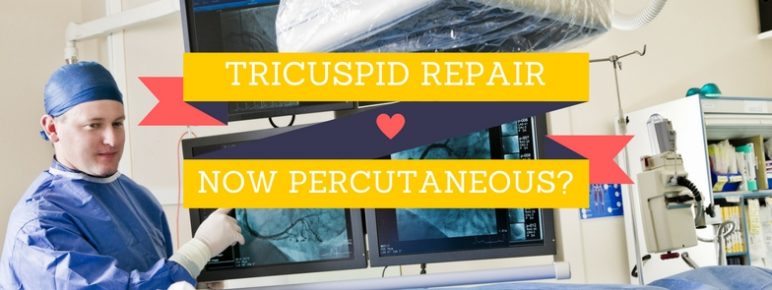Valtech Cardio's Cardioband system brings direct annuloplasty to the field of percutaneous coronary intervention—for catheter-based mitral valve repair and now, tricuspid valve repair.
A team from the University Hospital Zurich led by Francesco Maisano, MD recently succeeded in the first ever minimally invasive procedure using Cardioband to repair a leaky tricuspid valve, according to yesterday's press release from the University of Zurich.
The news comes shortly after Valtech shared follow-up data from a multi-center Cardioband Mitral study at the PCR London Valves 2016 conference. Results showed a "significant and consistent reduction in MR" with a "safety profile similar to equivalent transcatheter procedures" according to the session slides.
A little over one year ago, the Cardioband system received CE Mark certification, demonstrating safety and efficacy for mitral valve repair in patients with functional mitral regurgitation and allowing the device to be sold in European markets.
Cardioband has not yet received FDA approval for sale in the United States, where the only FDA-approved transcatheter mitral valve repair device is Abbott Vascular's MitraClip.
Two case studies published earlier this year in the European Heart Journal and the Journal of the American College of Cardiology also explored using MitraClip to repair the tricuspid valve, successfully reducing tricuspid regurgitation from severe to mild across four patients.
Cardioband vs. MitraClip: what's the difference?
At last year's PCR London Valves 2015 conference, Dr. Francesco Maisano offered several factors differentiating the Cardioband system from MitraClip technology.
Firstly, the Cardioband treats the valve's annulus rather than its leaflets. "That means that an operator who can see the position of the annulus in echo would be eligible to do the procedure," said Maisano. "This makes this procedure probably learnable from the majority of the operators in the cath lab."
Secondly, Cardioband "doesn't close the door for further treatment, either with a clip or with valve replacement," he said. Indeed, a 2015 study published in the Journal of Cardiac Surgery concluded that the possibility of valve reconstruction is "less likely following the severe clip implantation-induced tissue damages" resulting from the MitraClip.
Thirdly, Cardioband is optimal for different mitral regurgitation pathology. "I think if annular dilation is the most important and prevalent pathology, then taking the annular dilation with the direct annuloplasty device is the way to go," added Georg Nickenig, MD, PhD of University Hospital Bonn. "On the other hand, if you have a lot of tethering, you won't be able to resolve the MR issue with a Cardioband."
Is FDA approval in the near future?
Maybe, maybe not.
The device-arm of the FDA, the Center for Devices and Radiological Health, under leadership of Jeffrey Shuren, MD, JD hopes to streamline processes for new devices to reach US patients. "In fact, this is so important for us that we made it one of our three 2014-2015 Center Strategic Priorities," reads a CDRH blog from last January.
Jeffrey Shuren "hopes to avoid a repeat of the situation with transcatheter aortic valve replacements (TAVRs)," reports FierceBiotech. "The agency approved its first TAVR more than 4 years after it earned a CE mark in Europe."
One year after CE mark approval for Cardioband, will it take another three years or more for FDA approval? Will it be approved at all?
After all, Abbott's MitraClip secured US approval five and a half years after receiving CE Mark certification and only after two substantial clinical trials were conducted, reads a proxy statement surrounding the failed HeartWare acquisition of Valtech. "FDA approval of Cardioband—if it is approved at all—would not be secured until sometime between mid-2020 and the end of 2022," suggests the statement.
Regardless of this particular device's fate, the story is suggestive of a larger, device- and tech-related trend moving many conventionally invasive procedures towards the minimally invasive cath lab.
